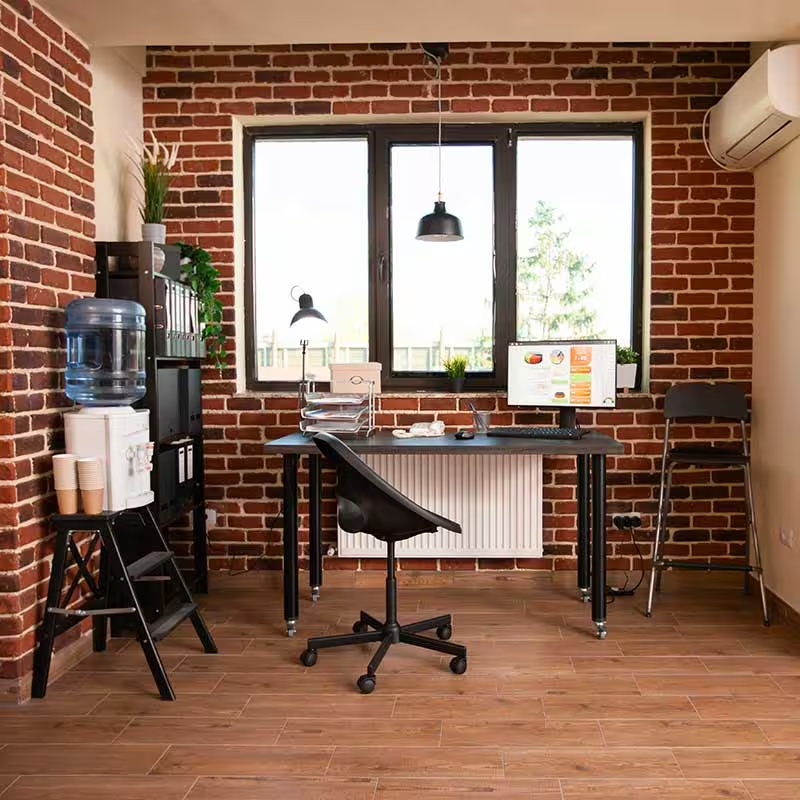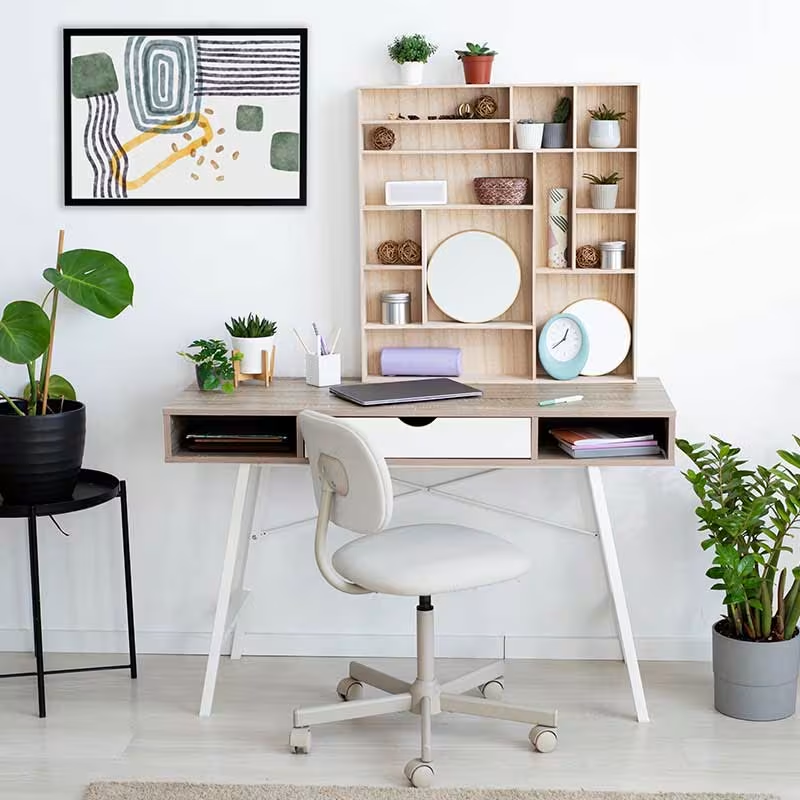In today’s increasingly remote working world, having a dedicated space for productivity is more important than ever.
A home office conversion in London allows you to transform underutilized areas of your home into a functional and comfortable workspace.
Whether you need a quiet retreat for focused work or a versatile area for meetings and creativity, converting a space in your home into an office can significantly enhance your work-life balance and boost productivity.

Contact us via phone, email or fill in the form at the bottom of the page for a Free No-Obligation Quote.
One of the main advantages of a home office conversion in London is the ability to create a space designed specifically for work.
By having a dedicated office at home, you can minimize distractions and establish a routine that promotes productivity.
The right setup, including ergonomic furniture, proper lighting, and effective storage solutions, can help you stay focused and organized throughout your workday.
Investing in a home office conversion in London can also increase the value of your property. With more people working from home, the demand for functional office spaces has grown.
A well-designed home office not only adds to your home’s functionality but also makes it more attractive to potential buyers, should you decide to sell in the future.
A home office conversion allows you to create a workspace tailored to your specific needs and preferences.
Whether you require ample natural light, soundproofing, or additional storage, you can customize your home office to enhance your comfort and productivity.
Personalizing your workspace ensures that it meets all your professional requirements while reflecting your style.
Converting a spare bedroom into a home office is a popular choice for many homeowners. Bedrooms often offer enough space for a desk, storage, and seating, making them ideal for creating a comfortable and private workspace.
If you’re not using your guest bedroom regularly, this space can be transformed into an efficient home office with minimal disruption.
A loft or attic conversion is another excellent option for creating a home office. These spaces are often quiet and separated from the main living areas, providing the perfect environment for focused work.
With proper insulation, lighting, and ventilation, a loft can be turned into a productive office space that maximizes your home’s square footage.
Converting your garage into a home office is a practical solution, especially if you need a larger workspace or a more isolated area.
Garages offer plenty of space for a complete office setup, including desks, meeting areas, and storage.
By adding insulation, windows, and heating, you can create a comfortable and functional office that’s separate from the rest of your home.
The process of home office conversion in London begins with a thorough consultation to understand your specific needs and the space available.
The next step involves designing the office layout, selecting materials, and planning the necessary structural changes. Whether you’re converting a bedroom, loft, or garage, the conversion process is carried out efficiently and with minimal disruption to your home.
The final stage is the installation of essential features such as flooring, lighting, and storage solutions.
Attention to detail ensures that your new home office is not only functional but also aesthetically pleasing, creating an environment where you can work comfortably and effectively.
A home office conversion in London is a smart investment that enhances both your work experience and your property’s value.
Whether you’re working remotely full-time or need a dedicated space for side projects, converting a part of your home into an office can make a significant difference in your productivity and overall work-life balance.
Explore the possibilities and start planning your ideal home office today.
Home office conversions in London vary depending on the type of property and the space available. Common options include:
The choice depends on budget, property layout, and how much disruption you are willing to accept during construction. Some clients combine options, such as extending a loft into a dormer for more space.

Not every home office conversion in London needs planning permission. Many fall under permitted development rights. However, you will likely need permission if:
For garden offices, there are height and boundary restrictions. It is important to check with your local planning authority before starting.
Even if you do not need planning permission, building regulations still apply. These cover:
Our skilled builders in London handle building control approval. Inspections will confirm that the work meets legal safety standards before completion.


A home office should be functional and comfortable. The design stage focuses on layout, lighting, and storage.
Think about where your desk will go, how much natural light you get, and where sockets should be. Good storage prevents clutter. If possible, keep the office separate from living areas to reduce distractions.
Noise insulation can be important, especially in busy areas of London. Positioning the workspace away from main roads or shared walls helps.
A good home office should be comfortable year-round and equipped for modern work. This means:
Planning these features early avoids costly changes later and ensures the workspace is ready for long-term use.

Many London homes need structural changes to create a suitable home office. This can include removing walls, adding windows, reinforcing floors, or installing staircases for loft access.
Optimising the space is just as important as the structure. Built-in desks, wall-mounted storage, and multi-use furniture can make smaller rooms work efficiently. Choosing light colours and keeping windows unobstructed can also make a small office feel bigger.
We handle every stage of your project, ensuring smooth coordination and timely completion.
With years of experience across London, we understand local regulations, styles, and challenges.
Your space, your vision—our team creates tailored plans that fit your needs and lifestyle.
We use premium materials and expert craftsmanship to deliver lasting, high-quality results.
Our creative team brings fresh, functional design ideas to every project we take on.
We prioritise sustainable materials and energy-efficient methods for a smarter build.

We start with a meeting to understand your needs. This includes the purpose of the home office, the space you want to use, and any specific requirements. We also discuss your budget and timeline. At this stage, we inspect the property so we can assess the space and identify any potential issues.
Once we understand the scope, we prepare a detailed plan. This covers layout, materials, and technical requirements such as lighting and electrics. We make sure the design works for the space and meets building regulations. If planning permission is needed, we help prepare the application.


Before work starts, we arrange site preparation. This includes ordering materials, scheduling trades, and setting up safety measures. We confirm all details with you so there are no surprises during the build.
We carry out the conversion according to the plan. This can involve structural changes, electrical work, insulation, and finishing. We keep you informed as the project progresses and address any issues quickly.


When the work is complete, we inspect everything to make sure it meets the agreed standard. We explain how to use any installed systems and hand over all relevant documents. The space is cleaned and ready for you to move in and start using as your home office.
We can convert a spare room, loft, garage, or basement into a functional home office. Each space has its own challenges. A loft conversion might need structural support, while a basement needs damp-proofing. We plan the layout and design to make the best use of the available space.
Most internal home office conversions do not require planning permission. But if you are adding extensions, changing the roof, or altering the building’s exterior, permission may be needed. We can check your property and advise if an application is required.
The duration depends on the type of space and the work involved. A simple room conversion can take a few weeks, while loft or garage conversions may take a few months. We provide a clear timeline during the planning stage and keep you updated throughout the project.
Conversions must meet UK building regulations for fire safety, ventilation, insulation, and electrical work. Windows and exits need to meet safety standards. We ensure all work complies with these regulations and can arrange inspections if needed.
Costs vary depending on space, materials, and complexity. A simple room conversion is cheaper than a loft or basement conversion. We provide a detailed estimate after assessing your property and discussing your requirements. This includes labour, materials, and any fees for permits or inspections.
Whether you have questions about our services, need a quote, or want to discuss your next project, our friendly and knowledgeable team is ready to assist you.